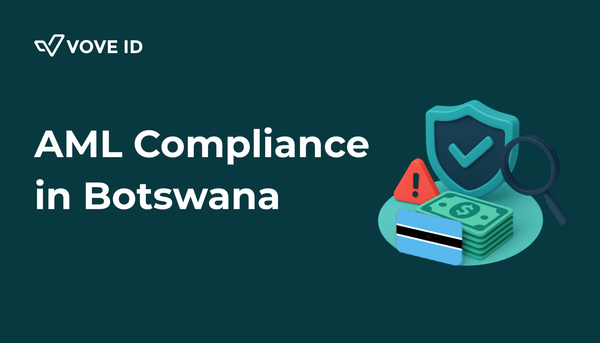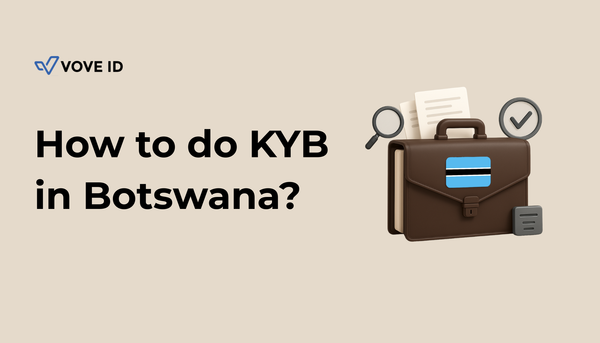KYB Compliance in France: 2025 Guide for Regulated Businesses
Explore KYB compliance in France for 2025, covering Code Monétaire et Financier, AMF, and business verification strategies.

Why KYB Is Critical in France Today
France faces heightened scrutiny as it prepares for the FATF’s 2025 follow-up review, following findings in the FATF’s 2022 Mutual Evaluation Report on France FATF Mutual Evaluation Report 2022. Regulators urge businesses to tighten their AML/CTF practices, especially KYB procedures, to address gaps and prevent abuse of opaque corporate structures. The Autorité des Marchés Financiers (AMF) and Autorité de Contrôle Prudentiel et de Résolution (ACPR) highlight that financial crime costs France billions annually. Under the French Monetary and Financial Code, Know Your Business (KYB) ensures regulated entities verify corporate clients’ legitimacy, protecting the financial system. Non-compliance can lead to fines up to €5 million or 10% of annual turnover, aligned with EU AML reform efforts. This guide outlines KYB requirements and best practices for 2025 compliance.
What is KYB?
KYB is a cornerstone of France’s AML/CTF framework, verifying business identities and legitimacy to combat money laundering and terrorist financing. It identifies corporate entities and their ultimate beneficial owners (UBOs) while assessing risks. Governed by the Code Monétaire et Financier and EU directives like AMLD5, KYB targets high-risk sectors like real estate. The FATF’s 2022 evaluation praised France’s progress but noted gaps in non-financial sectors, driving stronger KYB measures. Non-compliance risks penalties and reputational damage amid EU harmonization.
With a clear understanding of KYB’s purpose, the next section identifies who must comply.
Who Must Comply?
KYB applies to “obliged entities” under the Code Monétaire et Financier, including:
- Banks and credit institutions
- Investment firms and financial advisors
- Insurance companies
- Real estate agents and legal professionals (strengthened focus in 2025)
- Virtual asset service providers (VASPs), per AMF updates
These entities fall under Article L561-2 of the French Monetary and Financial Code, which lists those subject to AML/KYB obligations. Non-regulated entities, such as luxury watch sellers, may adopt KYB voluntarily to mitigate risks. Businesses with B2B partners, like suppliers or corporate clients, must also comply to ensure transparency.
With clarity on who’s affected, the next step is understanding how to comply.
Key Requirements
The AMF and ACPR mandate these KYB steps:
- Verify Business Identity: Confirm the legal entity with a certificate of incorporation, trade register extract (e.g., Kbis extract), or tax registration.
- Identify Beneficial Owners: Determine UBOs with a 25% threshold, per AMLD5, likely to remain under the forthcoming EU AML Regulation expected to be adopted in 2025–2026. Note: The upcoming EU AML Regulation (AMLR) may reduce UBO thresholds from 25% to 15% for high-risk entities, depending on final adoption details expected in 2025–2026.
- Screen Risks: Check for PEPs, sanctions, and adverse media ties linked to the business or owners.
- Assess Risks: Evaluate the business’s risk profile based on activities, jurisdiction, and transactions, applying EDD for high-risk cases.
- Monitor Transactions: Track activities for suspicious patterns, updating profiles as needed.
- Retain Records: Keep KYB records for five years after the relationship ends, available to TRACFIN within 30 days, per Article L561-12 of the Code Monétaire et Financier.
Obliged entities must retain KYB records, including business registration and UBO details, for five years after a relationship ends. Suspicious transaction reports must be submitted to TRACFIN within 30 days upon request.
Digital KYB tools—like API-based verification, UBO databases, and AI-powered screening—boost speed and accuracy, helping businesses meet obligations efficiently.
With these standards in place, let’s explore implementation challenges.
Challenges & Solutions
KYB compliance faces hurdles:
- Complex Ownership Structures: Multi-tiered ownership, especially involving cross-border holding companies, can delay UBO identification.
- Lack of KYC/KYB Integration: Many businesses separate KYC and KYB processes, increasing inefficiencies and risk of oversight.
- Regulatory Updates: The 2025 focus on real estate and legal sectors raises compliance demands.
- Data Privacy: Aligning KYB with GDPR adds complexity.
- Resource Constraints: Manual processes strain smaller firms.
France requires identifying UBOs with a 25% threshold, matching EU standards, while the U.S. (FinCEN) uses 25% with deeper verification. The UK’s 25% threshold includes public PSC registers, unlike France’s restricted access.
Solutions include automated KYB platforms, staff training, and third-party verifiers. Platforms like Qard API enhance efficiency—explore their solutions for seamless KYB.
The following section outlines best practices.
Best Practices
Optimize KYB compliance with these strategies:
- Use Automation: Leverage digital tools for real-time verification and UBO screening.
- Use Centralized UBO Databases: Leverage INPI’s Registre des bénéficiaires effectifs and pan-EU tools to speed up verification.
- Conduct Risk Assessments: Regularly evaluate business clients, following AMF’s risk-based approach (DOC-2019-15).
- Train Staff: Regularly train staff on AML/CTF risks and regulatory shifts.
- Partner with Experts: Collaborate with KYB platforms tailored for French rules.
- Monitor Updates: Stay informed on Code Monétaire et Financier and EU AML changes.
What documents are needed for KYB?
A Kbis extract, certificate of incorporation, and UBO documents, per AMF guidelines.
What if UBO information is unclear or missing?
French firms must document due diligence efforts and may report incomplete KYB as suspicious under TRACFIN guidelines.
Are exceptions available?
Yes, simplified due diligence applies to low-risk entities like listed companies, per ACPR rules.
Qard API offers secure, France-focused KYB solutions for fintechs and VASPs.
The next section provides a practical compliance checklist.
Checklist

How France Compares in the EU
Comparison Table: KYB Across EU States (Alt Text: Table comparing KYB requirements in France, Germany, and Spain for screen readers)
Country | Beneficial Ownership Threshold | Record Retention | Enforcement Stats (2024) |
|---|---|---|---|
France | 25% (AMLD5) | 5 years | €12M in fines (based on AMF 2024 enforcement stats) |
Germany | 25% (AMLD5) | 5 years | €15M in fines (BaFin reports) |
Spain | 25% (AMLD5) | 10 years | €8M in fines (SEPBLAC reports) |
This table highlights France’s alignment with EU standards, noting Spain’s longer retention period and varying enforcement intensity.
Recent Updates
📢 Key Developments:
- Enhanced supervision of real estate and legal professionals (2025), addressing FATF-identified gaps as part of France’s follow-up commitments, per FATF recommendations.
- Improved transparency through beneficial owner register access, per AMLD5 and forthcoming EU AML Regulation, which France is preparing to implement. The AMLR package introduces a new EU AML Authority (AMLA), expected to directly supervise some high-risk entities from 2026.
- Increased focus on virtual assets, aligning with AMF’s updated General Regulation.
Trends
KYB in France evolves with technology. AI-driven tools improve UBO identification, and automated platforms streamline verification. Industry forecasts, such as those from LexisNexis Risk Solutions, anticipate a 25–35% increase in digital KYB adoption among French regulated entities by 2026, driven by EU pressure and rising enforcement. AMF’s focus on non-financial sectors underscores the need for robust KYB ahead of FATF follow-ups.
Wrapping Up
KYB in France ensures compliance with the Code Monétaire et Financier and EU AML regulations, protecting businesses from financial crime. Digital tools and proactive strategies streamline the process. Platforms like Qard API and VOVE ID can support efficient compliance—book a demo to see how automation can streamline your onboarding. As EU scrutiny intensifies, future-proof your KYB process now.




